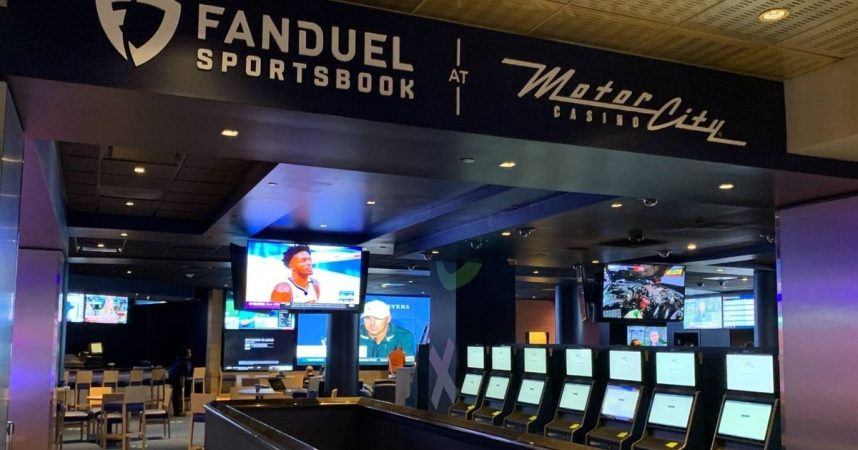IGaming Fueling Revenue Growth in Michigan
Posted on: August 3, 2023, 05:19h.
Last updated on: August 4, 2023, 11:16h.
The Great Lakes State is setting a strong pace for online casinos and sports betting revenues so far in 2023. IGaming and sports betting combined increased 24% in June 2023, compared to the same month last year.

June’s total numbers in Michigan came in at $169.3 million, bringing the first half of the year revenue to $1.13 billion. In the same six months of 2022, that total was roughly $757 million. The upswing is setting the stage and expectations much higher for the remainder of the year, with the $2 billion mark on the distant horizon.
IGaming, or online wagering, is the primary driver for the 2023 numbers so far. IGaming revenue accounted for $151 million in June marking the fourth consecutive month with revenue breaking the $150 million mark.
Sports betting is a mixed bag. Gross sports betting receipts totaled $18.3 million, which is actually down nearly 50% from May, which came in at $35.2 million. But analysts appear to be firmly in the optimistic category, with overall momentum carrying the remainder of the year.
Taxes paid by the operators to the state of Michigan combined for a total of $28.9 million for June. Broken down, that figure included iGaming taxes and fees of $28.4 million and online sports betting taxes and fees of $545,632.
The three Detroit casinos reported $7.4 million in wagering taxes and fees during June. Tribal operators reported $3.5 million in payments in June.
Competition Increasing in Michigan
Just this week Ceasars Casino Michigan transitioned to Ceasars Palace Casino Michigan. It’s a slight name change, but a significant piece of Ceasars’ goal to ramp up the online casino product in the state. The new online casino features an expanded gaming library and connections to its own rewards program. The same effort is also being made in Pennsylvania and West Virginia.
It’s a casino-first entry into our digital business,” said Caesars Chief Executive Officer and Director Tom Reeg. “And in terms of capabilities bonusing, segmentation, proprietary games, live dealer, it is light years beyond what we’ve been operating under.”
Ceasars is battling to climb over more than a dozen operators entrenched and ahead of them in Michigan, as well as other new entrants to the market.
Bragg Gaming Group launched its content in Michigan through the FanDuel platform. It also did the same in Connecticut.
“As such, the rollout of our new proprietary and third-party exclusive games and technology with FanDuel in Michigan and Connecticut is a significant proof point of the success of our new U.S. content roadmap,” said Yaniv Sherman, Bragg Gaming Group CEO.
Online Casinos a Major Focus
Legislative battles and competition are cross-currents in the growing iGaming market.
Michigan is one of six states that currently allows legalized iGaming, and others are making an effort to join that list. It can be noted that the push comes as online sports betting has hit nearly half of the U.S. Online casinos have been a much greater challenge for legislators to piece together in their states, as we have noted a number of times in recent articles.
Worldwide, online gambling is increasing at a rapid rate. The global online gambling market is expected to top $213 billion by 2028, according to Arizton. The current value is roughly $105 billion.
One of the reasons for the growth is virtual reality technology combined with increased saturation of mobile phone and internet technology, which means you can play in a casino 24 hours a day without ever leaving your laptop or mobile device.
Related News Articles
Michigan iGaming and Sports Betting Surges this Summer
Caesars Digital Notches First Profitable Quarter
Kansas Marks One Year of Legal Sports Betting
Bally’s Open to Selling Tropicana Las Vegas Lease, Cuts 300 Digital Jobs
Most Popular
LOST VEGAS: ‘Tony The Ant’ Spilotro’s Circus Circus Gift Shop
Casinos That Were Never Casinos
Most Commented
-
End of the Line for Las Vegas Monorail
— April 5, 2024 — 90 Comments -
Cracks Emerging on Las Vegas Strip Says Analyst
— April 30, 2024 — 14 Comments -
Mega Millions Reportedly Mulling Substantial Ticket Price Increase
— April 16, 2024 — 9 Comments
















No comments yet